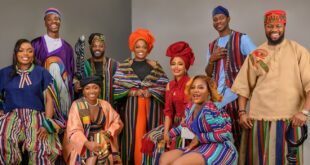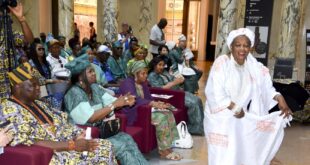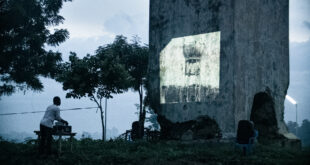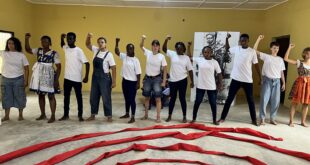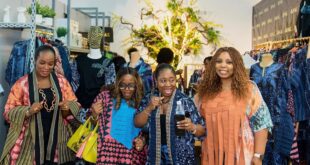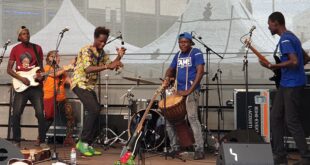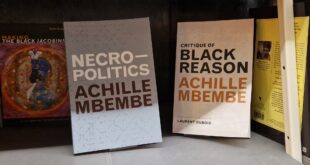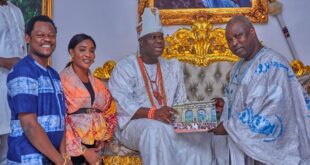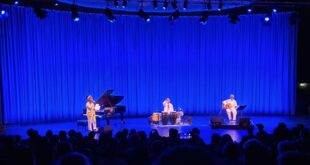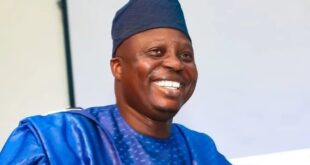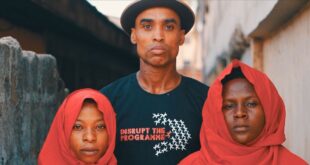If music journalists from Europe or North America lack the words to express how much they love the music of an African reggae artist they have just stumbled upon, they are quick to talk about “Africa’s Bob Marley”. Lucky Dube, Alpha Blondy, Tiken Jah Fakoly, Rocky Dawuni and many others have been compared to the first superstar of the “Third World”. The latest artist in that line goes by the name of Meta Dia.
Meta was born and raised in Dakar, Senegal. He started to rap with two friends in elementary school. “We were watching all this music on MTV,” he recalls during our phone interview, “and we wanted to express ourselves.” Senegal could, in a sense, be called the cradle of rap music. The movement there is huge today, especially in the country’s capital. While a few top-ranking groups such as Positive Black Soul and Daara J get exposure on national TV, most of the rapping kids “are popular only in their neighbourhood”.
In 2000, Meta relocated to New York. “I always had this dream of going to the US, just because of the music and what I saw on MTV.” He could not speak English at the time of his arrival, and that was not the only problem he had to face. “It wasn’t what I thought it would be. But I got to learn a lot.” About the differences between the hip-hop movements in the US and Senegal, for instance.
As soon as he understood the English lyrics, he felt that he could not relate to US hip- hop anymore. “I was 21 at the time and still trying to find myself.” An encounter with jazz guitar player Sean Blackman from Detroit proved groundbreaking. He encouraged Meta to work on his guitar skills and to sing, rather than rap.
“One day I got to listen to Coming In From the Cold by Bob Marley, and I could relate to it and feel the vibration.” His mother used to play a lot of reggae music, Meta says. He did not understand what it was about, though, during his childhood days. For Meta, music needs to be conscious. “We have to teach or educate or preach. We have to uplift the people.” Meta had found reggae music, and reggae had found Meta.
Together with his international band – the members of The Cornerstones hail from Japan, Israel, Lebanon, Côte d’Ivoire and Jamaica – Meta celebrates the release of his sophomore album “Ancient Power” in 2013. It was published by VP Records, the world’s largest independent label for reggae music. Meta is the first African artist ever signed to it. “I’m from the old school, and it reminds me of my days. It’s a band that sounds tight and wicked, with infectious lyrics,” says Clive Chin. He is the son of VP Records’ founder, and a renowned producer in his own right – he has worked with the likes of Dennis Brown and Black Uhuru.
Bob Marley once said that the moment reggae music reached Africa, it would be taken to a new level. Today, the continent has a thriving reggae movement from Casablanca to Cape Town, with some of its exponents enjoying popularity all over the world. Meta Dia has everything it takes to join them.
National Geographic Music already talks of him as “the future of reggae music”. Why? First of all, his voice is outstanding. Slightly hoarse and soulful, he vaguely reminds you of the late Bob Marley himself. On top of that comes Meta’s unique songwriting. “I like the storytellers,” he responds when I ask him about his influences. “Bob Dylan, Damien Rice, Salif Keita.”
And he himself has a lot to say, ranging from the standard oneness message of reggae to accounts of his travels through Africa and the Americas to love and departures. Singing mostly in English, he blends in Wolof and Fulani every now and then to keep the connection to his home country.
Meta recorded “Ancient Power” at Bob Marley’s Tuff Gong Studio in Kingston, Jamaica. A stunning array of legendary guest musicians ensures excellent musical quality. Mikey Chung, Squidly Cole, Dean Fraser, Sidney Mills and Julian Marley are just a few of them. Combinations feature Damian Marley, U-Roy and Capleton. The album unites the social consciousness of Senegalese rappers with the soothing powers of Jamaican roots reggae and the universality of New York City. It is music for the world that knows where it comes from.
“My Africanity will never go away,” says Meta. “But musically, I would call it world music. I like to travel, I like to discover, and I like to experience different cultures.” The youth of today, the first fully globalised generation, understand him intuitively. As the highly gifted representative of a new generation of Africans that lets go of the fights of the past to deal with their own, unique problems, Meta Dia has everything it takes to fill footsteps as large as those Bob Marley left.
Valentin Zill
 THE AFRICAN COURIER. Reporting Africa and its Diaspora! The African Courier is an international magazine published in Germany to report on Africa and the Diaspora African experience. The first issue of the bimonthly magazine appeared on the newsstands on 15 February 1998. The African Courier is a communication forum for European-African political, economic and cultural exchanges, and a voice for Africa in Europe.
THE AFRICAN COURIER. Reporting Africa and its Diaspora! The African Courier is an international magazine published in Germany to report on Africa and the Diaspora African experience. The first issue of the bimonthly magazine appeared on the newsstands on 15 February 1998. The African Courier is a communication forum for European-African political, economic and cultural exchanges, and a voice for Africa in Europe.



